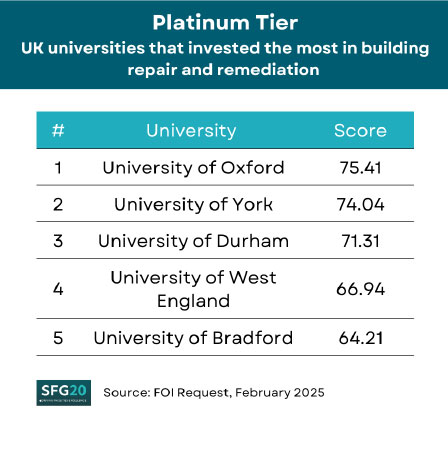By Samudrapom Dam
Artificial intelligence (AI) is quickly becoming a major player in construction management, helping teams plan better, manage risks smarter, and deliver projects more efficiently. As the tech evolves, AI-powered tools are no longer just “nice to have,” they’re becoming essential to staying competitive.
AI’s growing role in construction is no accident. The rise of computing power and access to massive volumes of unstructured, internet-based data has opened up new possibilities for managing complex projects. And complexity is exactly what modern construction teams are dealing with.
Projects today are bigger, involve more moving parts, and face tighter constraints on time and budget than ever before.1-3 Traditional management methods are starting to show their limits—there’s only so much human planners can juggle without help from smarter tools.
To put it in perspective: since 2013, project complexity has grown by more than five times. The average large-scale project now includes over 150,000 discrete activities and coordination across 27 specialized trades. A study of 214 such projects showed that 98 % experienced delays or budget overruns, with average costs running 32 % over budget and schedules falling 66 % behind.1-3
This is exactly where AI comes in.
AI tools can process vast amounts of data to improve planning accuracy, reduce risk, and optimize resources in real time. Whether it’s machine learning, computer vision, robotics, or natural language processing, these technologies are being used to support decisions across every phase of a project.
And they’re working. Construction firms using AI-enhanced project management tools have seen a 37 % boost in labor productivity, a 41 % drop in change orders, and budget deviations kept within 7.3 % of original estimates.1-3
Smarter Scheduling with AI
Scheduling is a critical, and often underestimated, challenge in construction. It’s not just about timelines—it’s about aligning resources, budgets, labor, and logistics, often under changing conditions. AI is making that process faster and more accurate.
Heuristics, search algorithms, and optimization techniques are already used in advanced scheduling tools. When combined with AI and building information modeling (BIM), especially during the early design stages, teams can improve how they forecast time and cost. But BIM’s automation is mostly limited to internal model data. It often misses real-world variables—which is where AI, particularly deep learning, adds serious value.2
In a study of 567 construction projects across Asia-Pacific, AI-based planning systems using neural networks reduced project variations by 31.7 % and improved scheduling accuracy by 42.3 %.1 These systems analyze historical data—on average, about 8750 activities per project—to deliver data-driven predictions.
AI-powered monitoring systems are also playing a big role. In research across 1234 Southeast Asian sites, projects that used monitoring tools with inputs from roughly 275 IoT sensors per site improved schedule adherence by 39.5 %.1 These systems give teams real-time insights, helping them make proactive decisions before small issues become major delays.
Digital twin technology, when enhanced by AI, is another game-changer. Among 89 large-scale projects studied, digital twins enabled early detection of project issues in 91.3 % of cases, analyzing around 32,000 data points daily with 96.5 % accuracy in detecting schedule deviations.1
AI is even helping teams get more out of their equipment. At 234 sites operating 1567 heavy construction units, AI-powered scheduling and maintenance tools improved equipment utilization by 52.3 %.1 These systems analyze 67 variables per unit and can predict maintenance needs with 94.7 % accuracy, cutting unplanned downtime by 61.8 %. Similarly, predictive maintenance applied to 892 units reduced downtime by 52.3 % and achieved 91.8 % failure prediction accuracy.1
Stronger Risk Management, Backed by Data
Risk management is crucial in construction, but many teams still rely on informal methods and fragmented communication. That’s a problem when you’re managing multi-million-dollar projects with dozens of stakeholders.
AI can bring structure, clarity, and foresight to this process.
By using knowledge-based systems, optimization tools, and machine learning, construction firms are improving how they identify and mitigate risks—and seeing measurable financial and safety benefits.2-4
In a study of 845 projects, predictive risk assessment systems powered by AI reduced insurance claims by 36.8 %, cost overruns by 49.3 %, and safety-related incidents by 67.5 %—leading to average annual savings of $2.4 million per project.1 Firms also reported a 45 % drop in design errors and a 38 % decrease in safety incidents.1
What makes AI particularly useful here is its ability to handle complexity. In one study of 312 infrastructure projects, machine learning models identified 87.4 % of potential risks during planning, compared to just 43.2 % using traditional methods.1 These systems evaluated around 156 risk variables per project, including regulatory compliance, market conditions, environmental factors, and resource availability. The result was a 58.9 % reduction in project uncertainties through better mitigation strategies.
More advanced AI applications are now capable of simulating over 1000 risk scenarios and detecting potential issues with 91.3 % accuracy.1 They’ve helped reduce uncertainties by 67.8%, making project planning more resilient and responsive. And in health and safety, AI is helping prevent accidents through innovations like BIM-integrated fall detection, sensor-based site monitoring, and wearable safety tech.1
AI Is Enhancing Project Delivery—Start to Finish
AI isn’t just improving how construction projects are planned, it’s also changing how they’re delivered. And BIM plays a central role in this shift.
When AI is integrated with BIM, it enhances digital management across the full construction lifecycle—from design and coordination to execution and operation.5 This integration is helping close the digital transformation gap in architecture, engineering, and construction (AEC).
For co-design efforts, AI allows all stakeholders to share and access design data in a standardized format, improving collaboration and information flow. This has also had a big impact on supply chain coordination—by identifying bottlenecks and quality risks earlier, projects stay on schedule and deliver better outcomes.2-5
In one study covering 556 infrastructure projects, AI-optimized project delivery shortened timelines by 31.6 % and saved an average of $5.1 million per project in indirect costs.1 Workflow optimization algorithms also reduced critical path delays by 47.2 %, contributing to significant gains in overall efficiency.
Wrapping Up
AI isn’t just enhancing how construction projects are managed—it’s redefining what effective project management looks like. From data-driven scheduling and proactive risk management to optimized delivery workflows, AI tools like predictive analytics, digital twins, and real-time monitoring aren’t optional add-ons—they’re becoming core to performance, safety, and profitability.
As construction projects grow in scale and complexity, relying on traditional methods alone is no longer sustainable. The companies already investing in AI are gaining a serious edge: they’re delivering projects faster, staying on budget, and making smarter decisions with fewer surprises along the way.
In short, AI isn’t the future of construction—it’s the standard being set right now. The question is no longer if you should adopt it, but how soon.
Source: AZO Build




